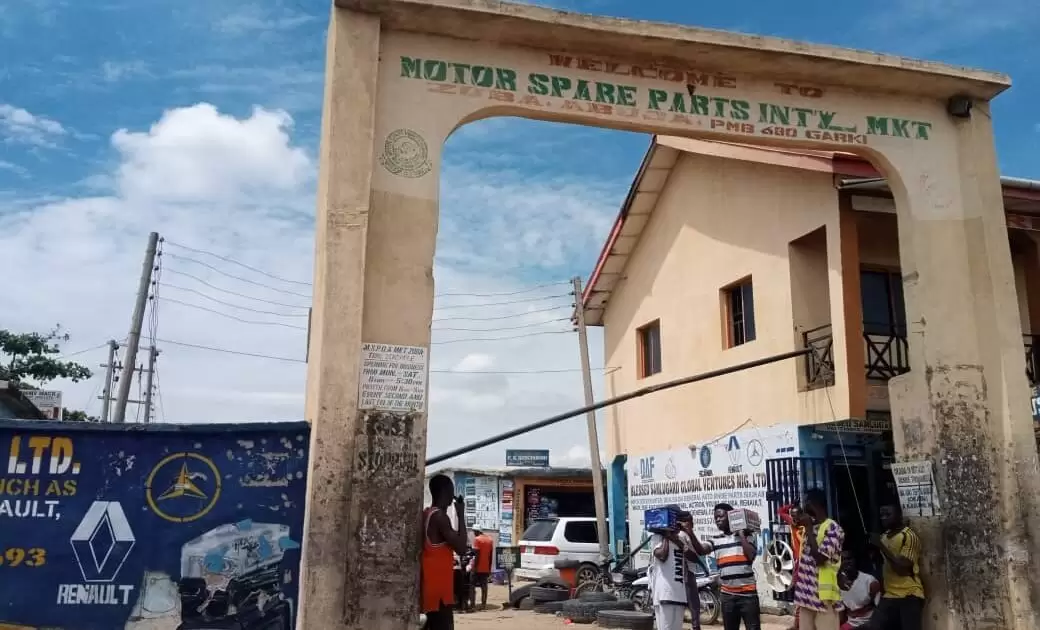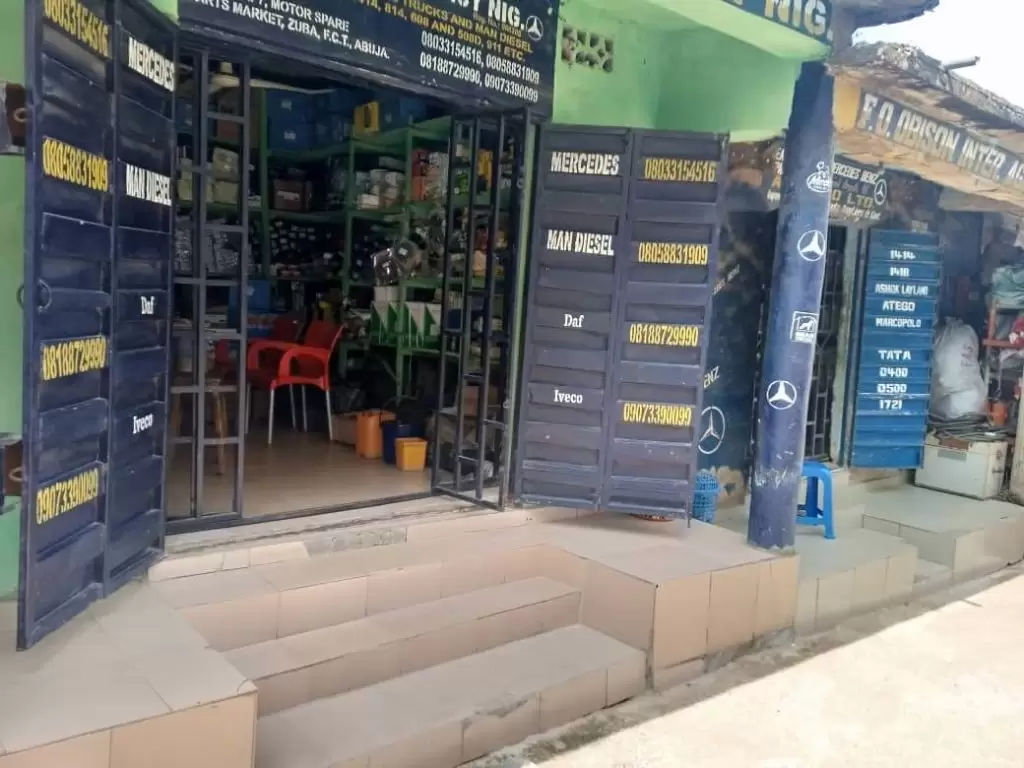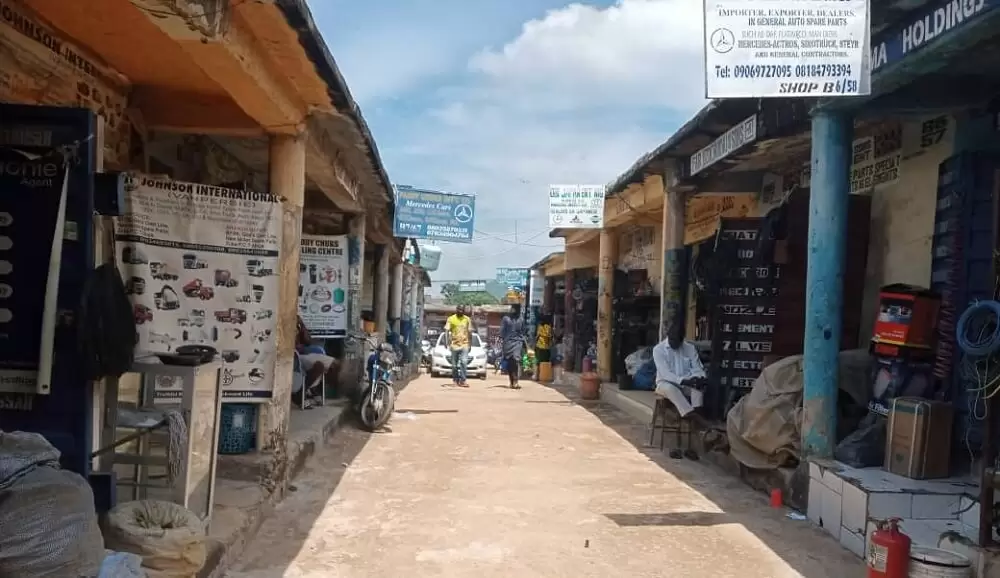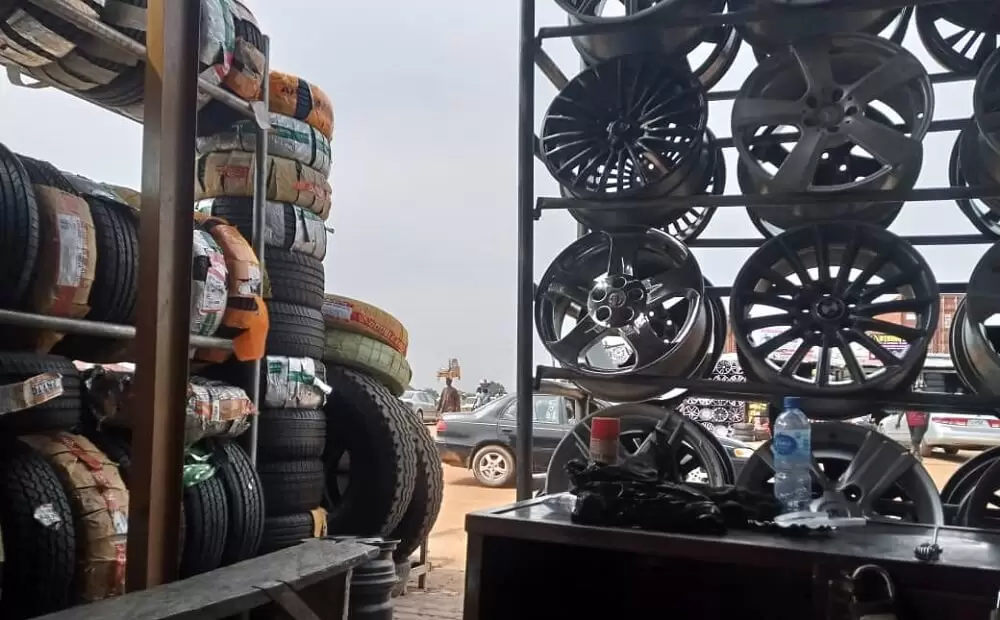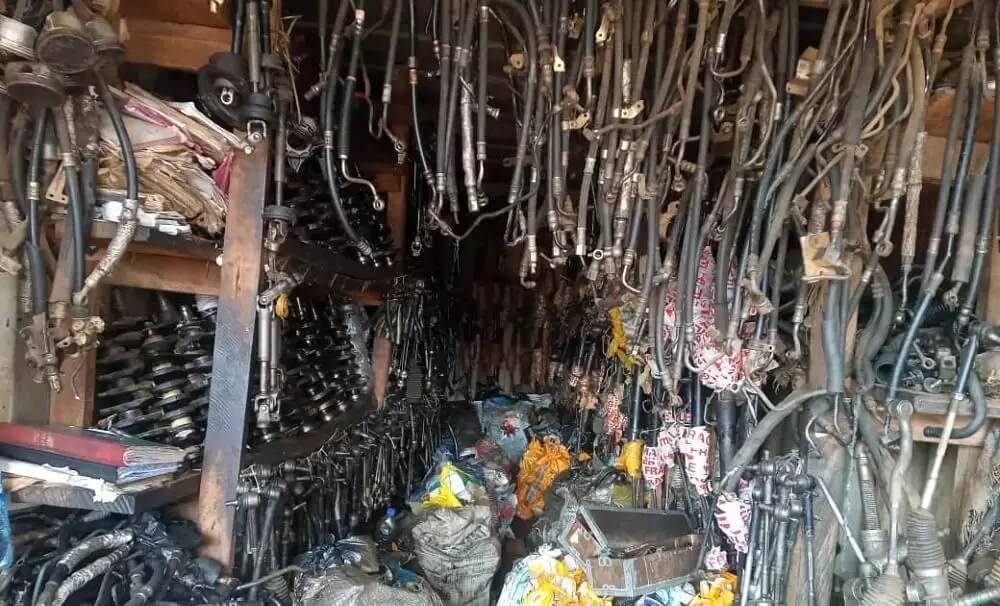‘Our Businesses Are Dying,’ Motor Parts Dealers Lament Dollar Scarcity
People who own cars or run a transport business will attest to the persistent cost of maintaining their cars. The problem of dollar exchange and sourcing for the currency to carry out export activities by Nigerian motor parts importers is currently biting hard across the country.
Infact, most Nigerian motor parts importers are grappling to survive even in the Federal Capital Territories as some of the markets have lost their boom.
Advertisement
Motor parts importers have lost their credit worthiness before their foreign suppliers who formerly gave them goods on credit.
The prices of automobile engines and other motor parts have risen at an alarming rate as the naira has continued to lose its value.
The naira is trading at N410.89 per dollar at the Central Bank of Nigeria rate, while it is trading around N572 at the unofficial market, but the more serious challenge is the supply of the dollar.
The scarcity has led to a spike in prices of different commodities in the Nigerian market. Earlier in January 2021, a Toyota Highlander 2008 engine was N300,000, but it now sells around N550,000 to N600,000.
Advertisement
A Toyota Corolla S engine as of December was between N320,000 to N330,000 now sells for N380,000 and N400,000.
The price of KYB shock absorber imported from Dubai or Japan over the last two months has risen from N60,000 to around N85,000.
Customer’s income is being eroded making it difficult for both the sellers and the buyers to maintain their vehicle.
The ripple effect will be on the transportation sector which has a way of making life more difficult for Nigerians.
The National Bureau of Statistics had blamed logistics and transport problems as one of the drivers of inflation. But the government has made deliberate effort to reduce the problem of logistics.
Advertisement
At the popular Motor Spare Parts Market in Zuba, Leonard Iroka, who runs Akinmbo Enterprise and heads the market union said the market has become a ‘ghost market due to low patronage.’
Iroka said, “The effect of the dollar devaluation is too high on us, because we can’t do our business without dollars.
“Most of the things we buy are imported and now that the dollar is so high, it is difficult for us to even import. The little ones we have are so high and customers are not so responsive, because we sell the way we buy. You might sell something to somebody today at N20,000, coming back tomorrow you might see the price has increased to N30,000, because as the dollar is increasing, the prices of goods are rising.
“We can’t send money to our suppliers abroad because the value of the currency has become so valueless.”
If for instance, a motor part dealer spent N5m for import at $12,500 (N400/dollar), today the same N5m in dollar terms is $8,695 at(N575/dollar).
The Chairman said, “It is better for you to buy goods than to have cash as a businessman, because cash will not give you turnover. Now that the business is so hard, it is difficult for us to transact.
Advertisement
“Before, if you ask for goods of $20,000 or $30,000, they will ask you to pay 30 per cent first before they send it to you. Immediately it reaches you, you will pay another 30 per cent making it 60 per cent then you pay the balance.
“But now, nobody in Europe or Asia will be able to release goods unless you pay fir it because they are afraid. This is because we can’t meet up as the naira devaluation has made it more expensive for us.”
He said for instance, if a supplier has an outstanding debt in Europe worth $10,000 at (N400/$) what he would need is N4m to settle the debt.
But when the naira depreciates to N575, one will need N5.75m which is N1.57m higher than the original debt owed the supplier.
“There have been so many defaults in payment. They too, because of this fluctuation of the dollar, are very careful to send goods on credit, because you must surely default on the payment with the naira devaluation.
“Most importers can’t meet up with the payment because they don’t have physical cash. That is how bad it is. Many motor parts dealers are struggling to survive.”
The problem of restocking has become a big issue among Nigerian vehicle parts dealers as most of them do not have access to dollars for importation.
Many shops at the popular market looked scanty on the dollar setback.
“There is no way we can meet up with the situation of dollars now. Everybody,” he added.
The case is not different at New Site, Apo Mechanic Village where Motor Parts dealers are struggling with both sales and getting supplies from Lagos or companies abroad.
Chima Oriaku, the Chairman of the Abuja Old Motor Motor Parts Dealers Association lamented the impact of dollars on the import of their goods.
“Things are moving slowly because of the dollar-induced high cost of goods. Everything sold here is imported from China but getting the dollar at the official bank rate is difficult,” said Oriaku.
Apart from that he raised the issue of trust deficit as another set back importers are faced when making credit orders from foreign suppliers.
He said, “The transport sector is at risk, because when transport companies spend more to service and replace their motor parts at high prices, Nigerians will pay higher cost on transportation.”
Elsewhere at the Gudu Market, the case was the same as the traders also lamented the setback caused by both dollar scarcity and naira devaluation on their businesses.
Dim Chris, an auto parts dealer at Appo Market who imports from China and the United States, told THE WHISTLER that he can no longer get supplies from his foreign suppliers except for cash.
Chris said, “It no longer happens. That credit facility before now we used to enjoy, but this time around it is no longer available because of the condition of our economy and dollar pricing.
“It has affected the credit worthiness of importers, because the currency has not been stable. The exchange rate coupled with the availability has affected us.”
He said that his survival strategy is to keep adjusting his price to suit market conditions.
“It has not been easy sourcing dollars. We source from black market and any possible means. At the bank, I have occasionally not been able to get dollar,” said Chris.
– This story was produced in partnership with Civic Media Lab under its Grassroots News Project.


